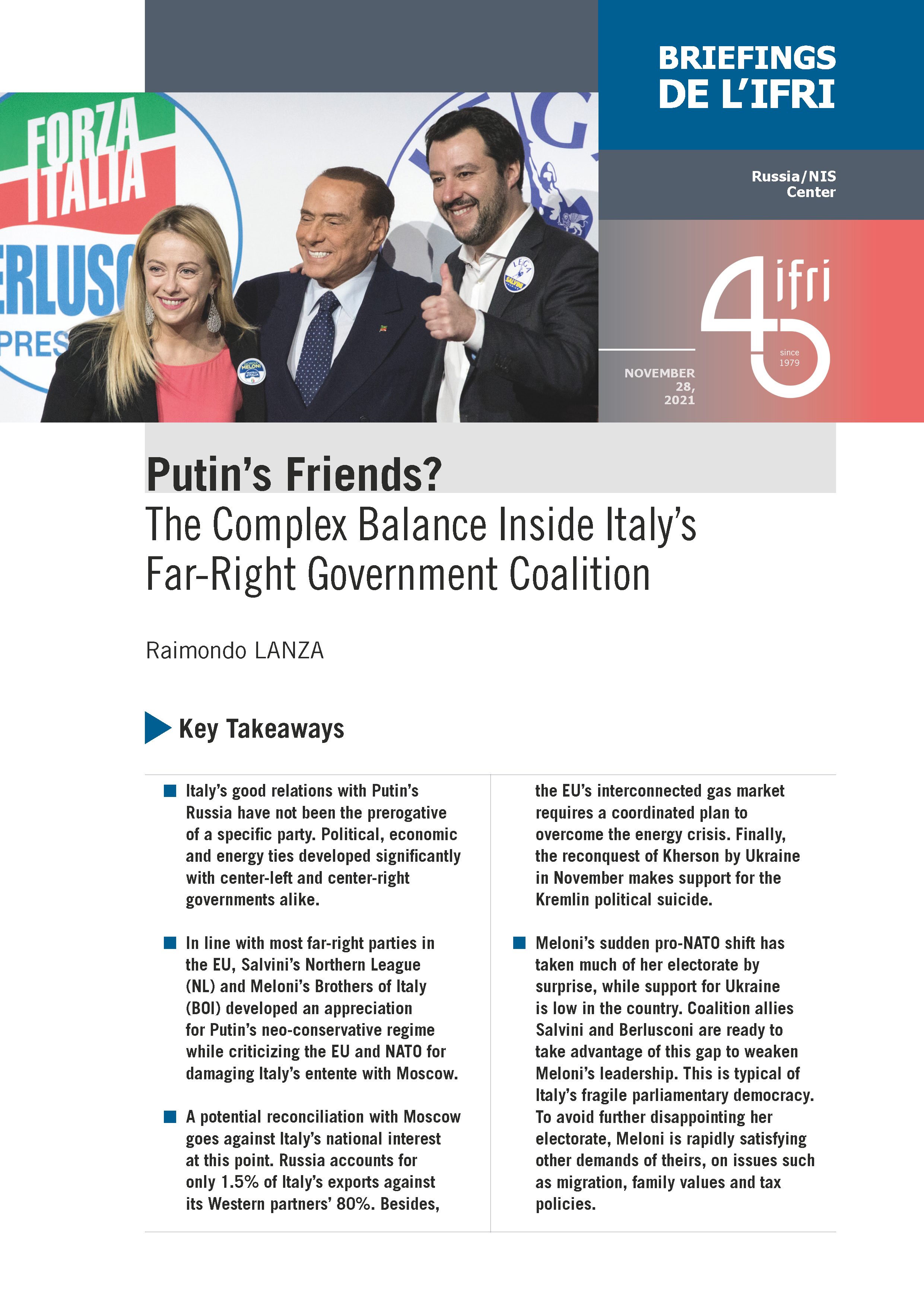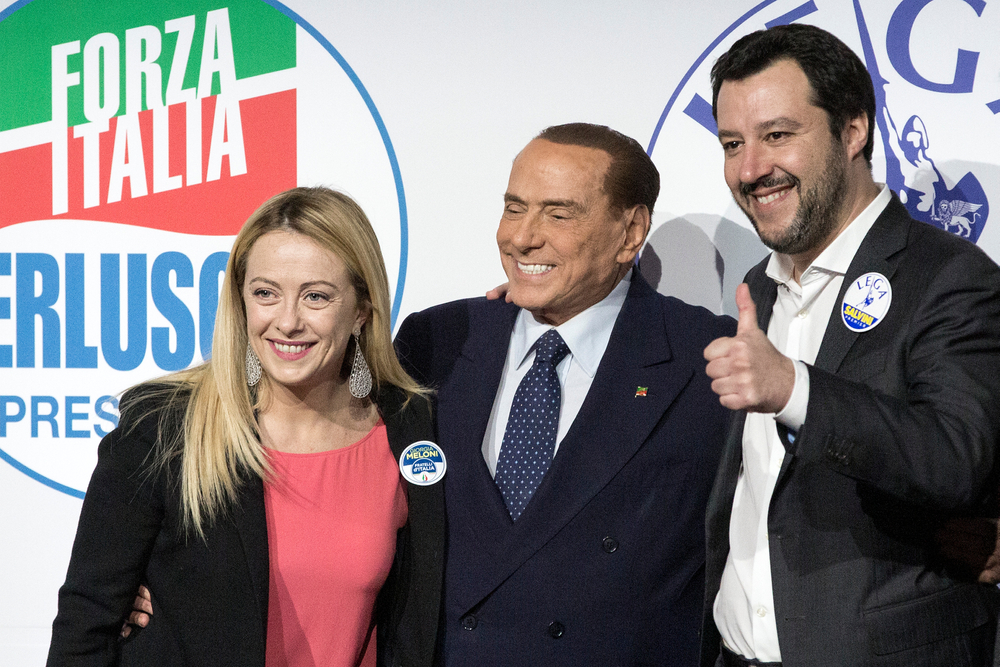Putin’s Friends? The Complex Balance Inside Italy’s Far-Right Government Coalition

Italy’s new far-right government has been widely perceived as the potential weak spot of the anti-Kremlin European front following Russia’s invasion of Ukraine: traditionally pro-Putin politicians such as Matteo Salvini and Silvio Berlusconi are back in power. Yet, after Mario Draghi’s hawkish Euro-Atlantic government fell in July and Giorgia Meloni was looking forward to a probable victory, she immediately sided with the European Union and the North Atlantic Treaty Organization in a firm condemnation of Russia.

Key takeways:
- Italy’s good relations with Putin’s Russia have not been the prerogative of a specific party. Political, economic and energy ties developed significantly with center-left and center-right governments alike.
- In line with most far-right parties in the EU, Salvini’s Northern League and Meloni’s Brothers of Italy developed an appreciation for Putin’s neo-conservative regime while criticizing the EU and NATO for damaging Italy’s entente with Moscow.
- A potential reconciliation with Moscow goes against Italy’s national interest at this point. Russia accounts for only 1.5% of Italy’s exports against its Western partners’80%. Besides, the EU’s interconnected gas market requires a coordinated plan to overcome the energy crisis. Finally, the reconquest of Kherson by Ukraine in November makes support for the Kremlin political suicide.
- Meloni’s sudden pro-NATO shift has taken much of her electorate by surprise, while support for Ukraine is low in the country. Coalition allies Salvini and Berlusconi are ready to take advantage of this gap to weaken Meloni’s leadership. This is typical of Italy’s fragile parliamentary democracy. To avoid further disappointing her electorate, Meloni is rapidly satisfying other demands of theirs, on issues such as migration, family values and tax policies.

Available in:
Regions and themes
ISBN / ISSN
Share
Download the full analysis
This page contains only a summary of our work. If you would like to have access to all the information from our research on the subject, you can download the full version in PDF format.
Putin’s Friends? The Complex Balance Inside Italy’s Far-Right Government Coalition
Related centers and programs
Discover our other research centers and programsFind out more
Discover all our analysesDeathonomics: The Social, Political, and Economic Costs of War in Russia
The report attempts to outline and examine a truly new phenomenon in Russian society, dubbed “deathonomics”—the making of a mercenary army against the backdrop of the Kremlin’s war in Ukraine, eventually replacing both the Soviet (conscript) and early new Russian (contract) armies. It notes that, by the end of 2023, this trend had turned the military service into one of the highest-paying professions in the country, something not seen in Russia on such a scale since the late 17th century.
Russia's Asia Strategy: Bolstering the Eagle's Eastern Wing
Among Russia’s strategic priorities, Asia traditionally played a secondary role compared to the West. In the mid-1990s, then Foreign Minister Yevgeny Primakov initiated a rapprochement with China and India. Then, in 2014, deteriorating relations between Russia and the West prompted Moscow to begin its “great pivot to the East”.
Kazakhstan After the Double Shock of 2022: Political, Economic and Military Consequences
The year 2022 represented a dual shock for Kazakhstan. In January, the country faced its most severe political crisis since independence, followed in February by Russia’s full-scale invasion of Ukraine, which cast uncertainty over the borders of post-Soviet states. These consecutive crises profoundly shaped Kazakhstan’s domestic and foreign policy.

How the Russian Army Changed its Concept of War, 1993-2022
The traditional and high-intensity war that has occurred in Ukraine since Russia decided to invade raises a key issue: did post-soviet Russian strategic thought really prepare Russia for waging this war?









